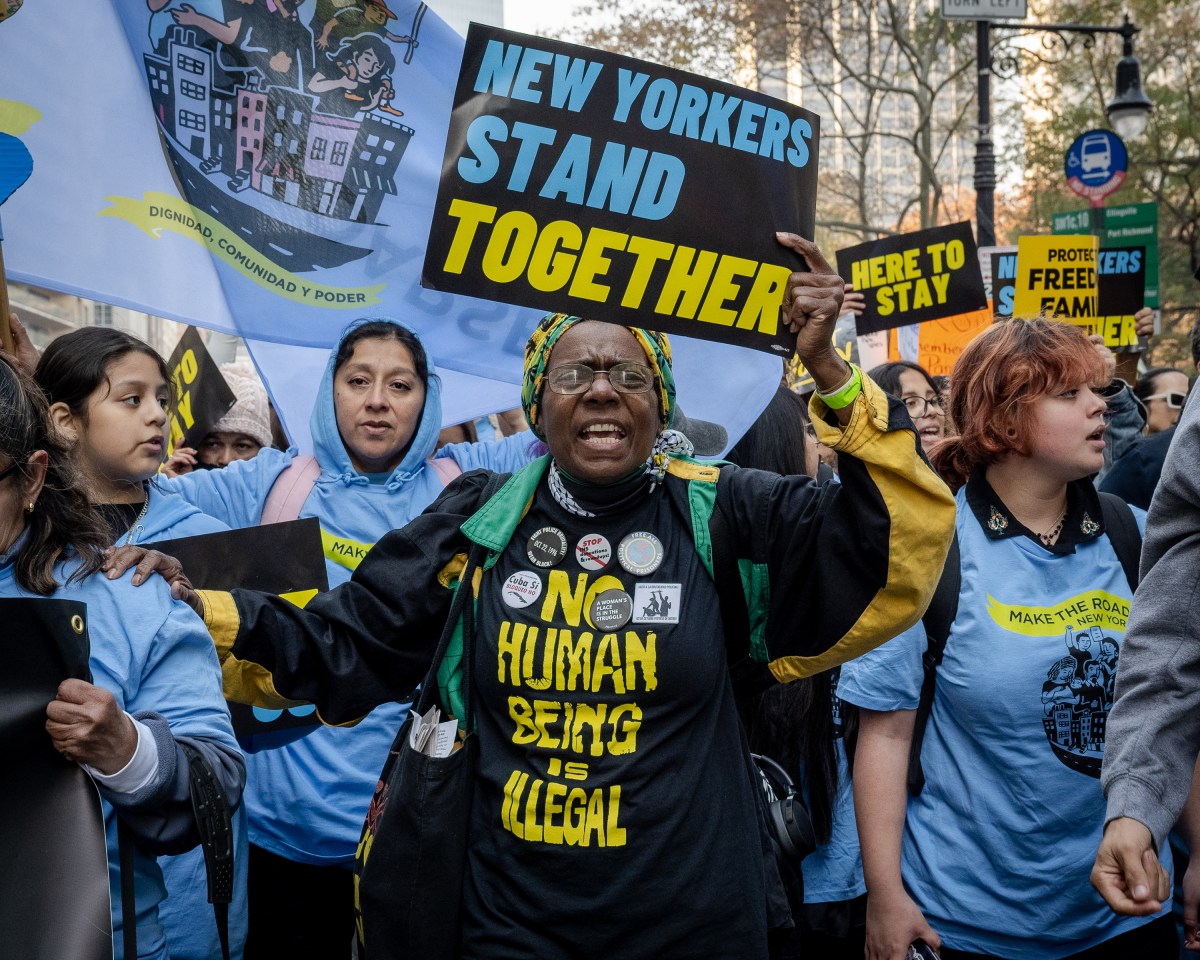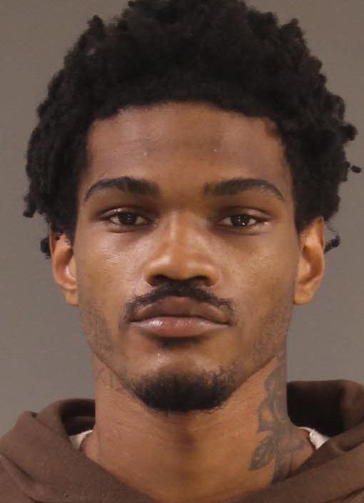Edward Esposito, the Essex County Sheriff’s Office detective who shot and killed an unarmed DeFarra Gaymon in Newark’s Branch Brook Park last July, may have been involved in at least three 2009 public sex arrests that also turned violent.
Following the shooting, Garden State Equality, New Jersey’s statewide gay lobbying group, made an open records request to the Sheriff’s Office seeking documents related to alleged “sexual conduct” in Essex County parks from 2005 to mid-2010.
The office released records on 167 arrests or investigations, with 148 of those occurring in Branch Brook Park or South Mountain Reservation, which is located in West Orange, Maplewood, and Millburn. Of the 148, 130 were arrests of men who may have been cruising for sex or, in some cases, were observed having sex with other men.
While information that identifies the defendants or undercover officers was redacted, Esposito’s name was not blacked out in a July 22, 2009 record. In that case, Esposito arrested a 41-year-old man for criminal sexual contact, resisting arrest, and aggravated assault on a police officer in South Mountain Reservation.
According to the report, the man walked up to Esposito and “reached out with his right hand and pulled my penis through my pants while he stated ‘nice.’” This occurred without any conversation or prompting. The man pushed Esposito and fled when the detective identified himself, according to the official account. When caught, the man punched Esposito in the chest.
On August 18, 2009, a 48-year-old man was charged with criminal sexual contact, resisting arrest, and aggravated assault on a police officer in South Mountain Reservation after he “began to rub his penis through his pants with his right hand while he sat on a log and groaned,” without prompting, in front of an undercover officer. At his arrest, that man allegedly fought with police and was sprayed in the eyes with pepper spray.
The following day, August 19, also in South Mountain Reservation, a 39-year-old man faced the same charges as well as obstruction after he “walked up from behind me and pinched my left buttocks and then reached around and grabbed my genitals and penis while he made a groaning sound,” the report said. No conversation preceded that action. He fled when the undercover announced himself and then allegedly fought with police. He was sprayed “in the face” with pepper spray.
While names were redacted in the August 18 and 19 reports, a portion of the text is identical to that in the July 22 report. Other reports that were written at about the same time used different text, suggesting that individual officers have their own standard report language.
The signatures in the three reports are only partially obscured and are similar to each other. Additionally, the signatures are similar to Esposito’s signature on the 2009 mortgage for his New Jersey home.
Gay City News found another 16 reports from 2009 and 2010 that matched the July 22 report text and signature. Resisting arrest was charged in two of those cases, along with criminal sexual contact.
The reports may accurately portray the three arrests. Two of the three men listed “wife” as their “nearest relative” in documents, so if they fought, they may have done so to avoid making explanations about the arrest to a spouse. One listed Honduras as his place of birth while another listed Colombia. Assuming those two fought, it may have been to avoid immigration issues that could result from an arrest. In fact, one of those two men was deported following his arrest.
Gaymon, 48, was married with four children, the chief executive of an Atlanta bank, and in Newark to attend his high school reunion. According to a statement from the Essex County prosecutor, Esposito was searching for his handcuffs when Gaymon, who “was engaged in a sex act at the time,” approached him. Gaymon fled when Esposito tried to arrest him. After the chase, Esposito stated, Gaymon threatened to kill him and lunged for him. Esposito then shot Gaymon.
The circumstances described in these arrest reports are suspect. A persistent theme in the 130 reports is that plainclothes officers were walking through a park when a man, without any prompting, exposed himself or grabbed the officer’s crotch. Those reports do not include complaints from citizens claiming they encountered such unwanted attention. To believe the reports, one would have to accept that nearly every time a man exposed himself or groped another male in these two parks, that man just happened to do it in front of or to a police officer. That is unlikely at best.
The likely explanation is that plainclothes officers, such as Esposito, were inviting men to expose themselves or touch the officers, and then arresting the men when they did. That trick, which would make the exposure or groping legal under New Jersey law, might make the men angry enough to fight back. Alternatively, they might believe that a man who seconds earlier had urged them to engage in an intimate act was not a police officer, but rather an individual who posed a threat of violence.
There is a darker explanation, and that is that Esposito is a police officer with a propensity for violence who harbors and acts on anti-gay views. It is possible that after fighting with at least three other men roughly one year earlier, he had had enough and shot Gaymon.
In an email, the Essex County prosecutor wrote, “We cannot comment specifically on the case involving Mr. Gaymon. It is still under investigation and will soon be presented to the grand jury. As far as the cases you reference, all three were presented to a grand jury. All three men were indicted by a grand jury. In two of the cases, the defendants admitted assaulting the officer and were allowed to enter Pretrial Intervention, a program where the charges are dropped if the defendant meets certain requirements. In the third case, the indictment was dismissed because the defendant was deported.”
That office would not confirm Esposito’s role in these arrests.
Steven Goldstein, chair of Garden State Equality, said the 2009 arrests called for more scrutiny of Esposito.
“These violent arrests certainly raise the question of whether Officer Esposito was the profoundly decent police officer that authorities said he was, and the people of Essex County are entitled to know more about his history through objective eyes,” Goldstein said. “These three arrests should certainly be examined in the context of whether Officer Esposito acted appropriately in Mr. Gaymon’s death.”
William K. Dobbs, an attorney and longtime gay activist, agreed.
“It’s crucial to have really thorough investigation because there is only one account so far of this incident which ended in a killing,” Dobbs said. “One hopes that those doing the investigation look very carefully at everything including Esposito’s record. These previous arrests should be scrutinized very closely in trying to answer the question how did DeFarra Gaymon walk into a park and end up dead.”

































